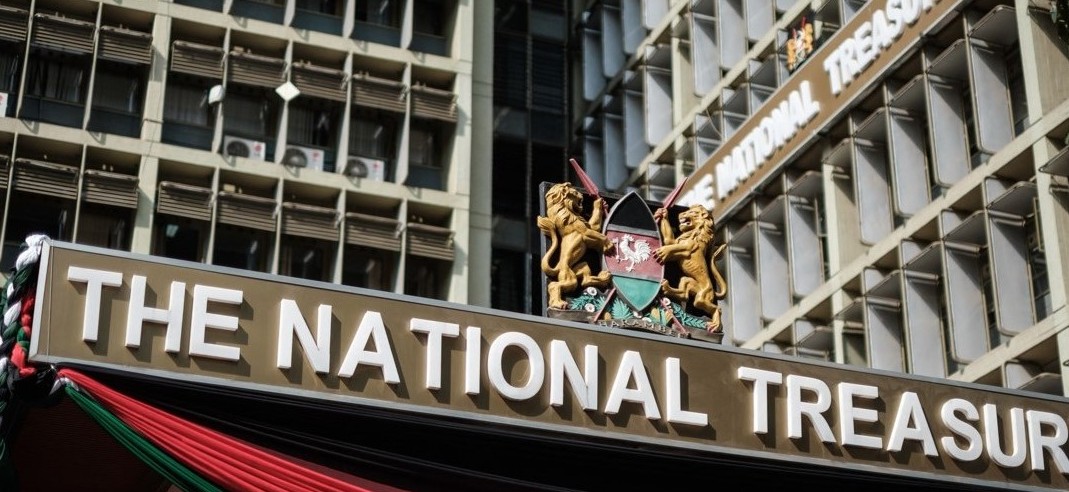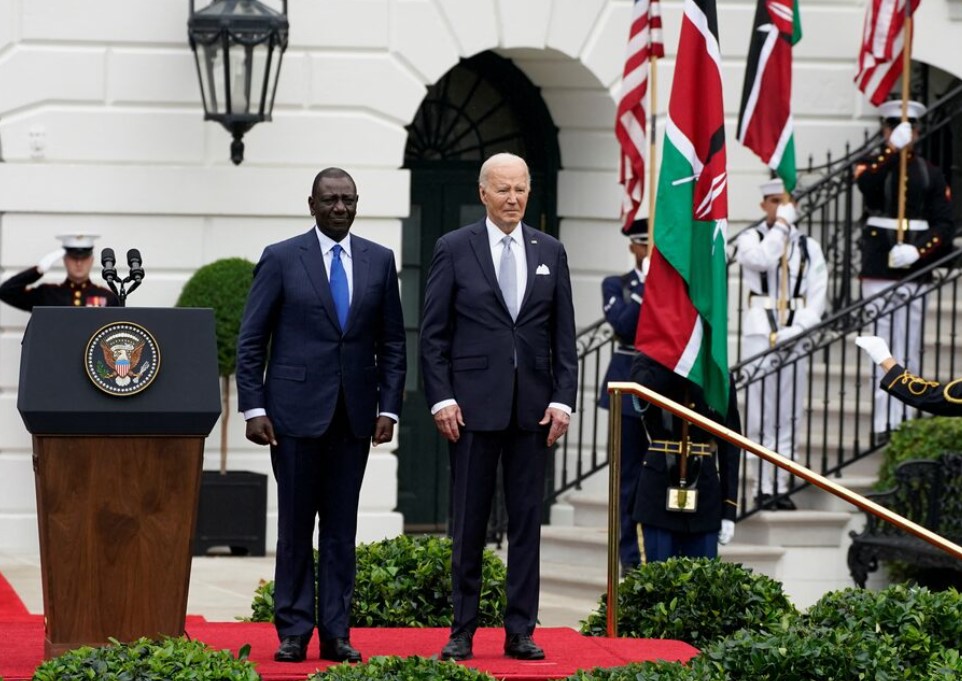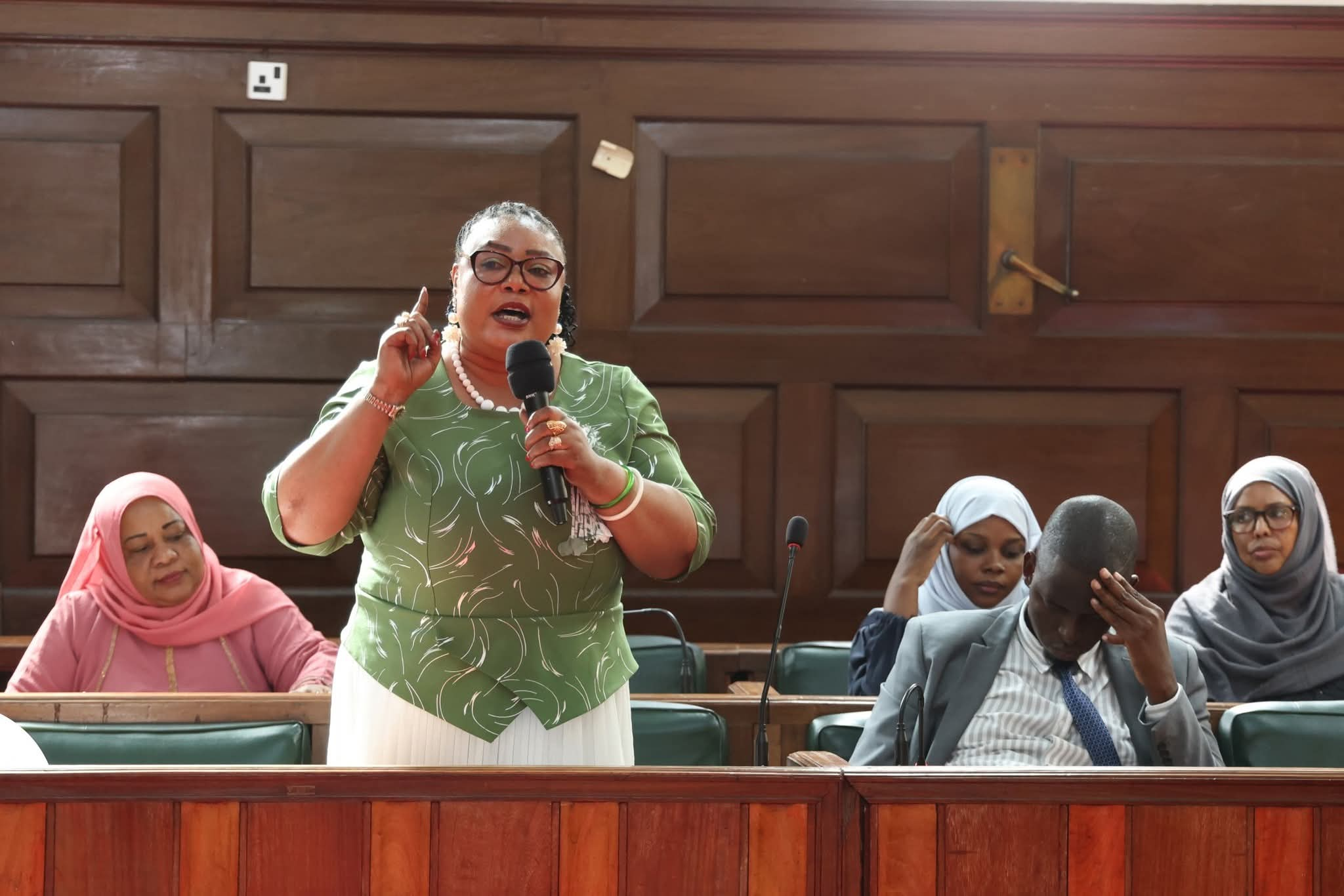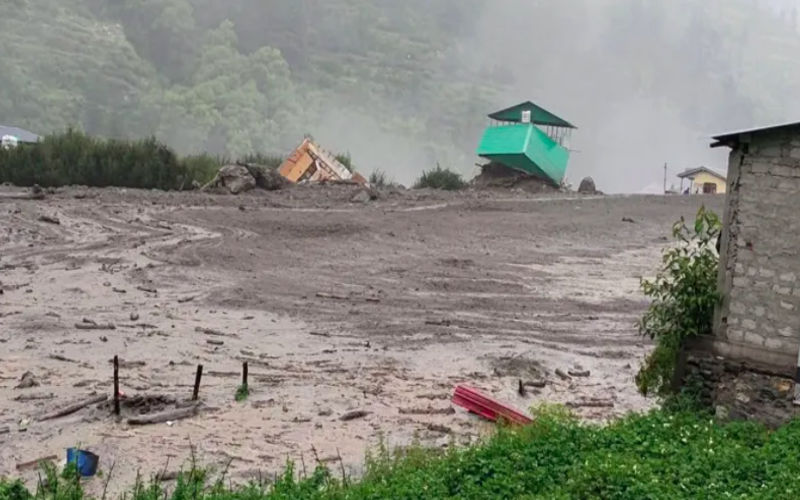Survival of the fittest for Kiambiu slum dwellers this Ramadan
Many residents of Kiambiu slum don’t enjoy breaking the fast during this Ramadan as they can’t afford dates and their basic needs.
Shukri Dida has been living in Kiambiu slum in Nairobi’s Kamukunji Sub-County since 1994. Following the death of her husband last year, life has become an unrelenting struggle for her and her four children.
"Surviving here is tough but it's all I can afford," she remarks, her face imprinted with defeat.
More To Read
- Safaricom’s Ndoto Zetu initiative elevates maternal health in Kamukunji's Eastleigh with bed donation
- Raila Odinga rekindles spirit of 1990 Kamukunji rally, honours Kenneth Matiba and Charles Rubia
- Kamukunji's quiet triumph: How community effort revitalised a historic Nairobi space
- Over 10,000 students in Kamukunji receive bursaries worth Sh71.5 million
- Eid-ul-Fitr and Eid-ul-Adha: The two major Muslim holidays and what they mean
- Moses Kivevu: Farming hero feeding Kiambiu slum against all odds
Forced to seek sustenance from neighbours, Shukri often finds herself breaking her fast with a humble quantity of ugali or githeri (a mixture of maize and maize) borrowed from her mostly non-Muslim neighbours.
The luxury of breaking the fast with dates as recommended by Islamic teachings remains beyond her reach. She cannot afford to buy the dates, which currently cost about Sh350 per kilo.
"I have never broken my fast with dates; they are too expensive for me," she laments.
Her sentiments are a testament to the harsh economic realities of life in Kiambiu.
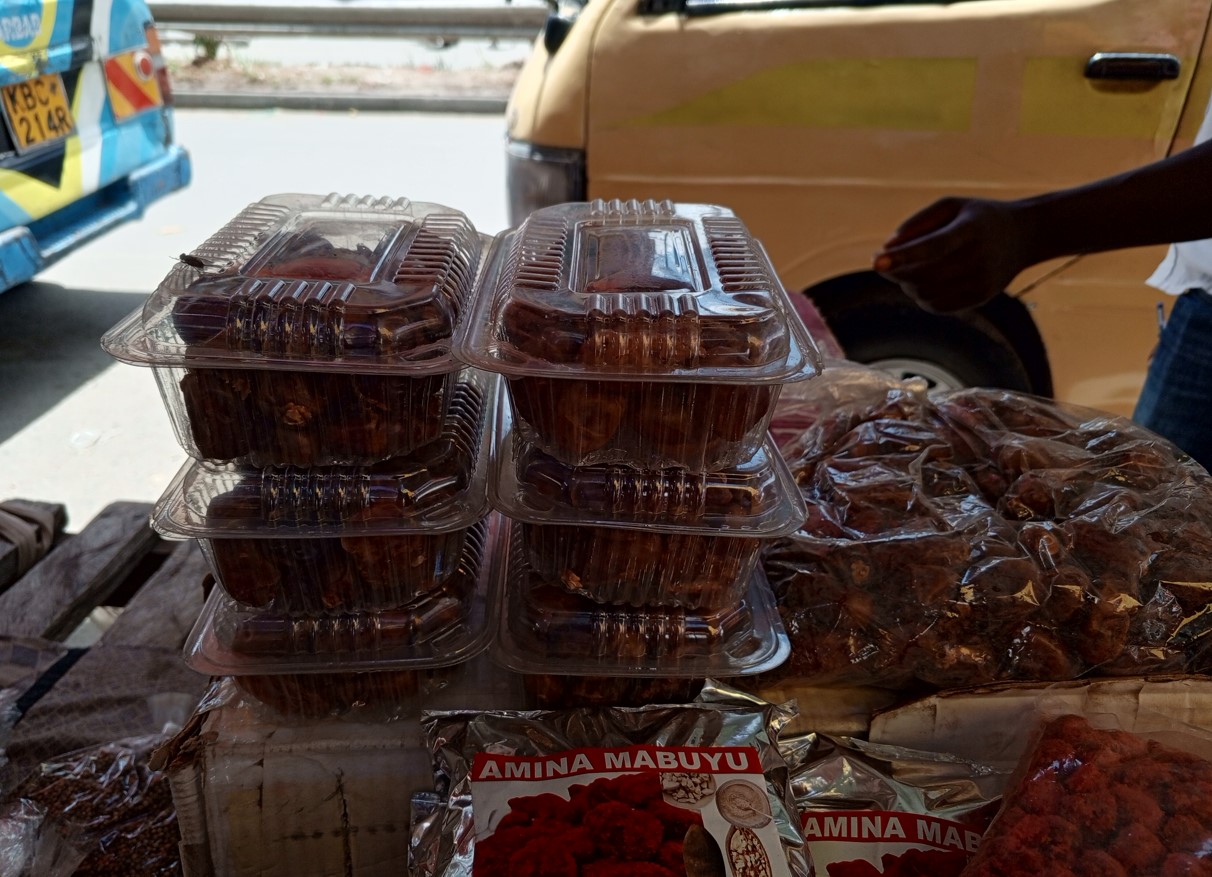 Dates on sale in Eastleigh, Nairobi, on March 11, 2024. (Photo: Charity Kilei)
Dates on sale in Eastleigh, Nairobi, on March 11, 2024. (Photo: Charity Kilei)
Shukri recounts that on the fourth day of Ramadan, she had nothing to eat or give her children, leaving her with no choice but to retire to bed, having only taken water to quell the pangs of hunger.
Despite the problems she is going through, Shukri says her strong faith serves as a beacon of strength.
Shukri’s story depicts the way of life of many residents of Kiambiu, which is home to over 60,000 people who are grappling with dire living conditions.
Lacking access to clean water, healthcare and security, life in this congested settlement presents a daily struggle for its inhabitants. Women are known to suffer the most.
This community's struggle is compounded by the uncertainty surrounding land ownership in Kiambiu, with claims that it is within the domain of the nearby Kenya Air Force, though efforts are underway to have the government designate it as public land.
Amidst these challenges, the observance of Ramadan poses unique challenges for the over 400 Muslims residing here. For them, Ramadan brings a unique set of challenges, as the holy month's traditions clash with the harsh realities of life in the slum.
A few metres away from where Shukri lives is Hamisa Hassan, a recent convert to Islam. She is originally from western Kenya and she lives in a tiny, one-room house made of old, rusty iron sheets. On the floor is an old, dusty mattress.
Hamisa makes a living selling vegetables by the road. As she speaks to The Eastleigh Voice, some onions, carrots and kale are displayed on her working table. The suffocating heat of her house is matched only by the harsh realities of her surroundings, where stagnant pools of raw sewage are seen on the dilapidated, tiny roads in front of her building.
On this particular day, a small cup of porridge serves as her only iftar.
"I hope my children will live in better houses when they grow up," she says with optimism.
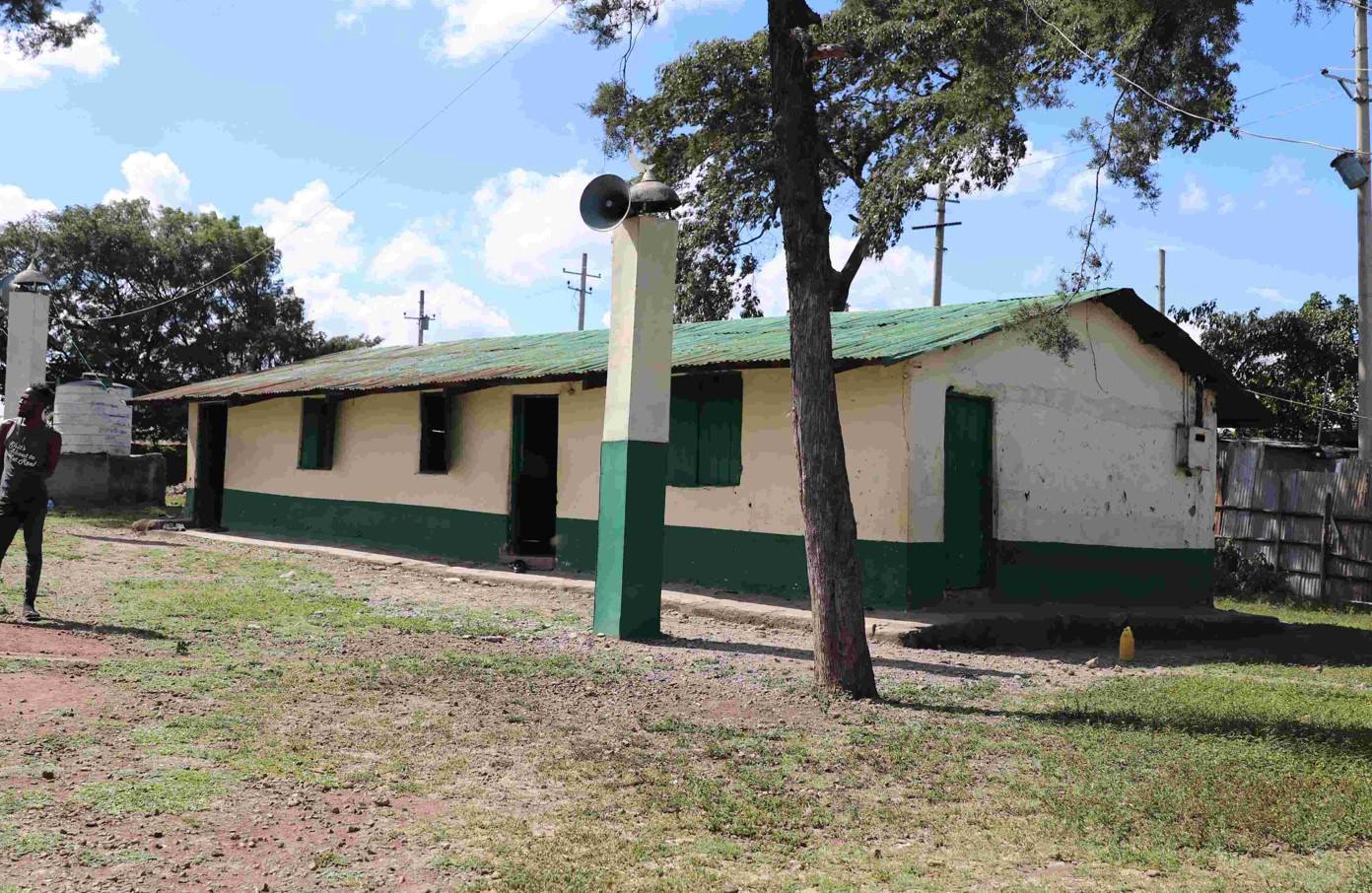 An old mosque in Kiambiu slum. (Photo: Abdirahman Khalif)
An old mosque in Kiambiu slum. (Photo: Abdirahman Khalif)
Su'ada Ali is one of the few people living in the mosque’s compound to protect it from landgrabbers.
She expresses her hope that kind-hearted individuals will help them rebuild the mosque, as she and other Muslims in the slum can hardly feed themselves, let alone fund such a project.
"We can't even have a proper iftar. We feel utterly helpless," she says, tearing up.
Saidi Mohamed, in his mid-twenties, has turned to construction jobs in Eastleigh after failing to find meaningful employment. He earns Sh100 a day, which he uses to support his family.
"At least I earn something for Iftar," he says.
As the sun sets over Kiambiu, casting long shadows over the thousands of small houses made of iron sheets, the 400 Muslims in this slum cling to their faith amidst the trials that Ramadan comes with.
For Shukri, Hassan and others, fasting is beyond abstaining from their wants; it is a testament to their resilience in the face of adversity.
In the quiet moments of prayer, they dare to dream of a future where their children escape from the shackles of poverty.
Until that day comes, they continue to find solace in the words of Prophet Muhammad: "Patience in adversity is the key to paradise."
Top Stories Today




